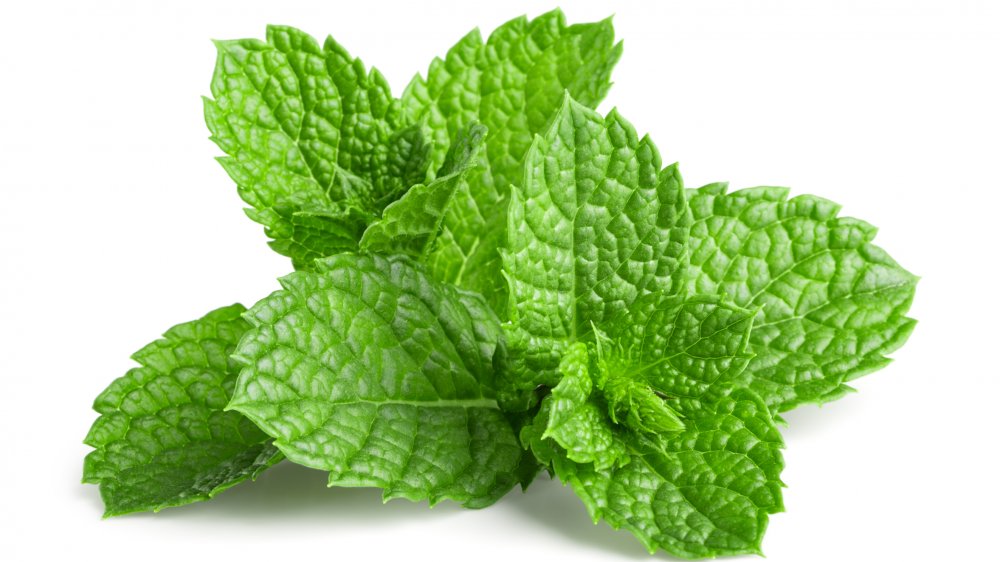Here's What You Can Substitute For Mint
Mint is a fragrant and aromatic herb. The very mention of its name conjures up images of Southern women sipping iced mint tea on big wrap-around porches, or ladies in outrageous hats and gents in their finest drinking mint juleps and cheering on their favorite horse at the Kentucky Derby.
Mint is named for the Greek nymph, Minthe. The story goes that Persephone, Greek goddess of vegetation, caught Minthe trying to seduce her husband, Hades. The green eyes of jealousy took over, and Minthe was transformed into garden mint. For this reason, mint is often associated with funerals and was used to cover up undesirable smells (via Greek Legends and Myths).
Of course, mint has plenty of uses, from cooking to baking to creating soothing teas to calm an upset stomach to flavoring pasta dishes, lamb, desserts, and drinks. Not to mention, there are hundreds of varieties of mint plants. Spearmint and curly mint are probably the most common of the varieties used in cooking, followed by peppermint. Because of the strong taste peppermint produces, it is generally not used as a fresh herb, but either dried or as an extract (via The Spruce Eats).
But what if you are making your favorite mint salad dressing or smoothie and there's not a spare leaf of mint to be found? Not to worry — there are plenty of alternatives that can offer the cool, minty flavor.
Best substitutes for mint
Mint's closest cousin is basil. Basil has similar refreshing flavors like mint, but it also has a peppery sweetness to it. The World of Food and Wine suggests substituting one tablespoon of chopped fresh basil for every one tablespoon of fresh chopped mint if you are making either a sweet or savory dish.
Another member of the mint family that's used in lots of Italian dishes is marjoram. Marjoram can also be a good replacement if you do not have mint in the house (via Spiceography). Marjoram has a delicate flavor that The Spruce Eats describes as having elements of citrus and pine.
The Gourmet Sleuth recommends substituting one tablespoon of chopped parsley when there is no mint in the house, or if you find yourself in a bind, try looking in the cabinet where you keep your tea. One teaspoon of herbal mint tea or a tea with mint essence can be used in place of fresh mint.
Additionally, The Spruce Eats suggests rosemary and tarragon can also serve as a comparable replacement for mint, especially when cooking meats. The site also notes that whatever you use to substitute, start with half the specified amount of what the recipe calls for and build off that flavor until it meets your taste.

